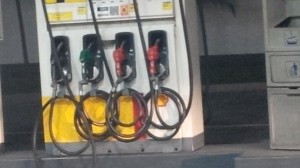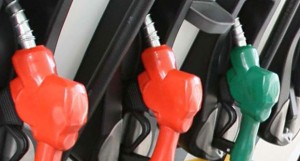MANILA, Philippines — Diesel and kerosene prices are set to dip this week, confirming analysts’ forecasts of price correction as the onset of Ramadan diluted fuel demand from Islamic markets.
Major oil player Shell and Seaoil (one of the largest independent oil players in the country) announced Monday that starting 12:01 a.m. Tuesday, they would slash diesel prices by P0.85 per liter while maintaining gasoline prices. They are also trimming kerosene prices by P0.95 per liter. Independent oil player Phoenix Petroleum, which does not retail kerosene, will also implement an P0.85-per-liter rollback for diesel starting Tuesday.
Other oil firms have not formally announced fuel price adjustments but are expected to follow suit since most of the country’s fuel sources are imported and are similarly vulnerable to price shocks.
The price cut, at least for kerosene and diesel, followed three straight weeks of decelerating price hikes for fuel products sold locally. During this time, supply concerns amid sectarian violence in the northern region of major oil exporter Iraq fueled price speculation even as Iraqi oil wells located in the southern regions remained operational.
Including the price movements this week, the year-to-date total adjustments stand at a net decrease of P1.70 per liter for diesel and a net increase of P1.75 per liter for gasoline.
Last week, industry observers said the market might be in for a price correction as Islamic countries observing the holy month of Ramadan have front-loaded their orders for the duration of the holy month. They are not expected to resume fuel orders until the season of fasting ends with the Eid-al-Fitr festival sometime the end of July to early August depending on the location.
Zenaida Y. Monsada, director of the Oil Industry Management Bureau of the Department of Energy, said fuel orders in preparation for Ramadan underlined strong demand in recent weeks and the Iraq crisis simply added fuel to price drivers. Towards the end of June, Indonesia took delivery of a “big shipment” for gasoline in preparation for Ramadan, further driving prices.
After a slew of very strong trades, oil suppliers saw prices “see-saw” during trading two weeks ago, signaling weakening demand. By then, Islamic countries were completing inventory orders for their month-long observance of Ramadan, during which time some 1.6 billion Muslims would spend most of their waking hours fasting and praying.
Private analysts said anticipation of a lower demand from the US (the world’s top fuel consumer) amid weak consumption and jobs data also helped soften global prices. Still, supply concerns over the lingering conflict in oil-exporting Iraq prevented prices from dropping further.



